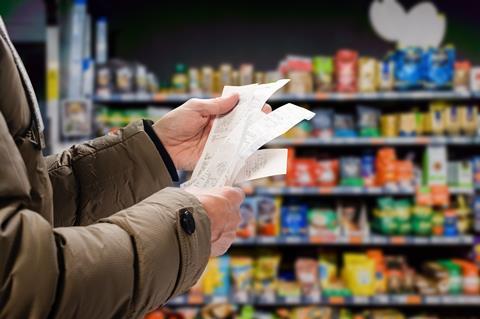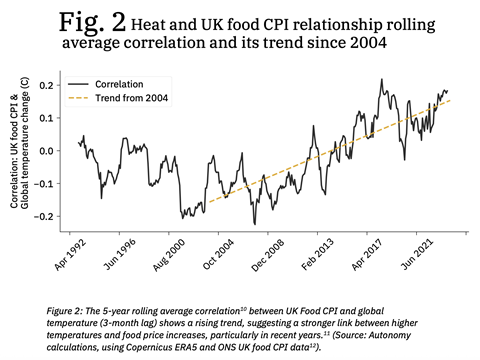A study from the Autonomy Institute warns “climateflation” risks pushing 1m Brits into poverty by 2050, as climate change impacts production at home and abroad

When it comes to food security, the UK’s vulnerability to worsening weather extremes is no secret, but the latest projections concerning “climateflation” in the UK still make for disturbing reading.
Increasingly extreme weather, including heatwaves and droughts, could drive up food prices in the country by more than a third by 2050, according to the Autonomy Institute think tank.
“The UK’s food inflation is closely tied to global supply disruptions, with rising temperatures affecting major food producers in Europe and beyond,” it stated. “By 2050, under high-emission scenarios, food prices could rise by 34 per cent in the UK due to heatwaves and droughts internationally and at home.”

It further revealed that climate-induced price rises for everyday food items could push nearly 1m people into poverty without urgent government intervention.
“The relationship between global temperature anomalies and UK food inflation is getting stronger, suggesting that global heating is generating a growing stream of supply constraints and shocks that impact core and general UK household inflation,” the report stated.
In addition to efforts to stabilise food prices and ensure availability during supply chain disruptions, the Autonomy Institute recommended that the government provide a basket of basic essentials to every household in the UK free of charge. “This would include food items that meet a significant percentage of the calorific and nutritional needs of every child and adult in the country,” it said.
With almost half of food consumed in the UK imported from overseas, British households are highly vulnerable to climate shocks. “Food supply shocks and the associated inflation felt elsewhere have a knock-on effect globally,” the think tank said. “The UK is particularly vulnerable to food price inflation in other countries because it is a net importer of food products.”
To mitigate the risks of climateflation, the Autonomy Institute said it was imperative for the UK to diversify its food sources and boost long-term domestic agricultural production. “Such measures are vital to enhancing national food security and reducing the economic and social impacts of future supply disruptions,” it said.
However, domestic farming is also under pressure in the UK, with storms and floods cutting vegetable production by 12 per cent in 2023.
Indeed, under a “best-case” scenario, with global heating limited to 1.5C by 2100 rather than 4C in the worst-case, the think tank said that cumulative food price inflation could still reach 25 per cent by 2050.
“Climateflation is no longer a distant risk; it’s a present reality,” said Will Stronge, chief executive of the Autonomy Institute. “We need to build real economic resilience – and that means rethinking what public service provision can and should provide in the face of climate disruption: from delivery of basic essentials to publicly funded diners and a national buffer stock.”



